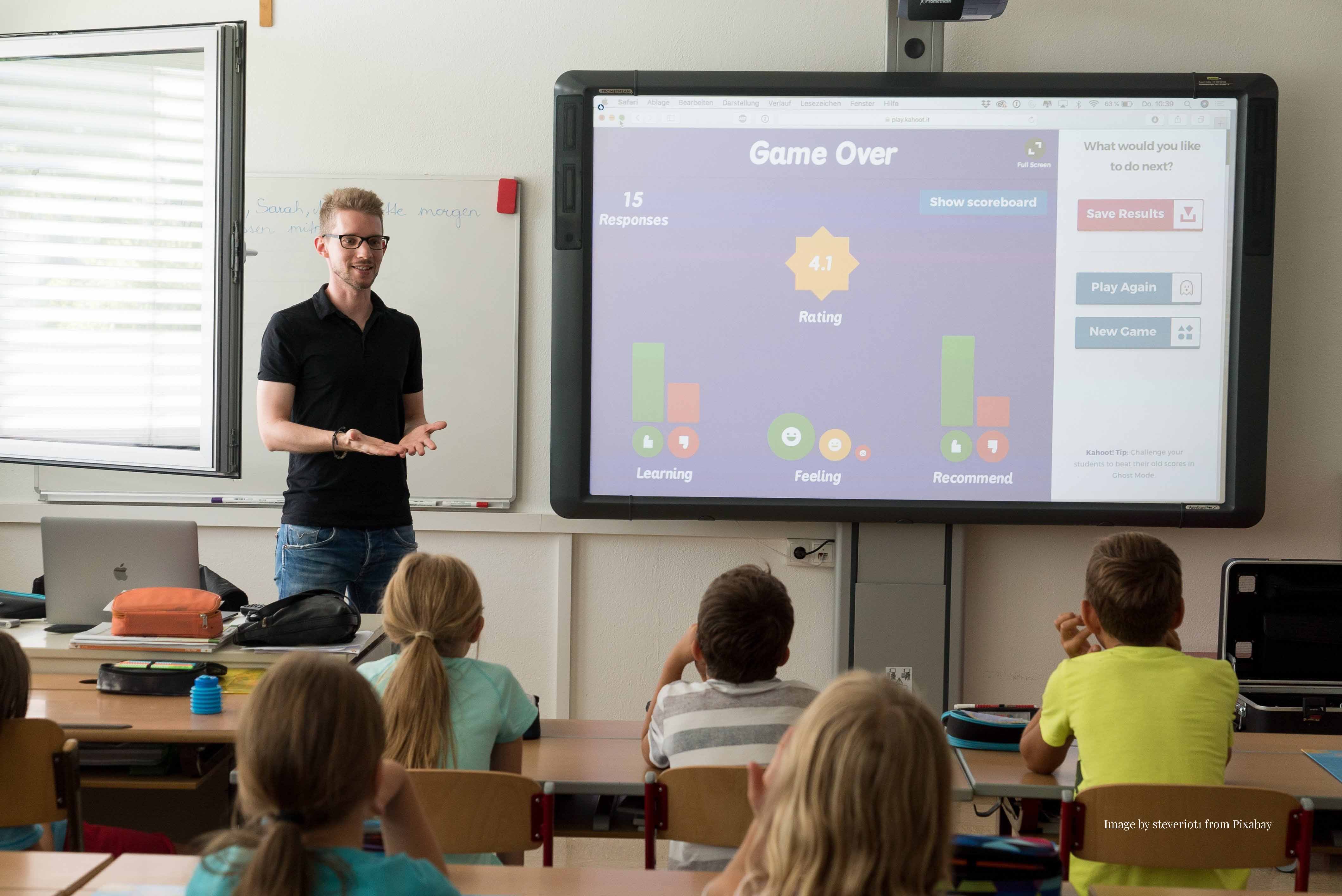May 10, 2022
Professional Development for Teachers: A Process That Never Stops...

E Education is a learning process without an end. It does not stop once a degree is attained, or after a teacher starts his career. A continuous relationship with education helps career-minded individuals to continually improve their skills and become more professional in their respective fields.
It is particularly important for school administrators, in primary and secondary education management, to enable professional development for teachers, not just imparting knowledge based on the curriculum but also to be able to mould a student effectively by utilising various skills that they themselves have learned along the way.
...if schools can establish a collaborative, intellectually stimulating environment for teachers, that’s a place where children will learn...
Educational technology, guidelines for schools, and standards for curriculum are continually changing. This makes it challenging for teachers to keep up with trends and best practices in the field. Professional development for teachers turns them into stronger and more efficient teachers by allowing them to produce useful and personalised lessons for the students. Research has shown that as a result, student achievement increases by as much as 21%.
Types of Professional Development for Teachers:
- Informal dialogue to improve teaching methods & techniques.
- Courses/workshops e.g. on subject matter or methods and/or other education-related topics.
- Reading professional literature.
- Education conferences or seminars where teachers and/or researchers present their research results and discuss education problems.
- Participation in a network of teachers formed specifically for the professional development of teachers.
- Individual and collaborative research on a topic of professional interest.
- Mentoring and/or peer observation and coaching, as part of a formal school arrangement. Teachers would be able to indicate participation in multiple activities.
- Observation visits to other schools.
- Qualification programmes e.g. a degree programme.

Professional Values to be Valued:
Adaptability: In this modern, digital age, teachers need to be flexible and able to adapt to whatever is thrown their way. Likewise, administrators are changing and updating expectations and learning standards. Whether it’s the way students learn these days, the behaviour their classroom exhibits, or their lesson plans. Being able to adapt is a skill that every modern teacher must have.
Confidence: Every teacher needs to have confidence, not only in themselves but in their students and their colleagues as well. A confident person inspires others to be confident, and a teacher’s confidence can help influence others to be a better person.
Communication: Being able to communicate with not only your students but with parents and staff is an essential skill.
Team Player: Part of being a teacher is being able to work together as part of a team or a group. When he / she works together as a team, it provides the students with a better chance to learn and have fun. Networking with other teachers (even virtually) and solving problems together will only lead to success. Doing so fosters a sense of community, not only in one's own classroom but school-wide as well.
Continuous Learner: Teaching is a lifelong learning process. The world is always changing and so are curriculum and educational technology. So it’s up to you, the teacher, to keep up with it. A teacher who is always willing to go that extra mile to learn will always be an effective, successful teacher.
Imaginative: The most effective tool a teacher can use is their imagination. Teachers need to be creative and come up with unique ways to keep their students engaged in learning, especially now that many states have implemented the Common Core Learning Standards into their curriculum. Many teachers are of the opinion that these standards are taking all of the creativity and fun out of learning. Teachers are finding imaginative ways to make learning fun again.
Leadership: An effective teacher is a mentor and knows how to guide their students in the right direction. They lead by example and are a good role model. They encourage students and lead them to a place of success.
Organisation: Modern teachers have the ability to organise and prepare for the unknown. They are always ready for anything that is thrown their way. Studies show that organised teachers foster more effective learning environments.
Innovative: A modern teacher is willing to try new things. From new educational apps to teaching skills and electronic devices. Being innovative means not only trying new things, but questioning your students, making real-world connections, and cultivating a creative mindset. It’s getting your students to take risks and learn to collaborate with others.
Commitment: While being committed to your job is a traditional teaching skill, it is also a modern one. A modern teacher needs to always be engaged in their profession. The students need to see that their teacher is present and dedicated.
Ability to Engage: Modern teachers know how to find engaging resources. Nowadays, it is essential to find materials and resources for students that will keep them interested. This means keeping up-to-date on new learning technologies and apps, and browsing the web and connecting to fellow teachers.
Ability to Manage Online Reputation: In this digital age, most, if not all, teachers are online, which means they have an “online reputation.” Modern teachers need to know how to manage their online reputation and which social networks are okay for them to use. LinkedIn is a professional social network to connect with colleagues, but other social networking site profiles, such as Instagram or Facebook, should remain private and separate from students.
Understanding of Technology: Technology is growing at a rapid pace. In the past five years alone we have seen huge advancements, and we will continue to see them grow. While these developments may be hard to keep up with, it is something that all modern teachers need to do. Not only do you need to understand the latest in technology, but you must also know which digital tools are right for your students.
Know when to unplug: Modern teachers know when it’s time to unplug from social media and just relax. They also understand that the teacher burnout rate is high, so it’s even more critical for them to take the time to slow down and care for themselves. They also know when it’s time to tell their students to unplug and slow down. They give their students time each day for a brain break and let them unwind.
Ability to Empower: Teachers inspire; that’s just one of the qualities that come along with the title. Modern educators have the ability to empower students to be critical thinkers, innovative, creative, adaptable, passionate, and flexible. They empower them to solve problems, self-direct, self-reflect, and lead. They give them the tools to succeed, not only in school but in life.
Take Home Message:
- Each year, identify and focus on any two instructional priorities. Ideally, schools should select the priorities with inputs from the teachers themselves. They should clearly communicate these priorities and expectations throughout all levels of the organisation.
- Schools should make a deliberate effort to support a teacher’s implementation of instructional priorities through training events, coaching, principal’s observation, staff and grade-level meetings, and evaluation systems. But ultimately, the best professional development comes from teachers teaching one another.
- If schools can establish a collaborative, intellectually stimulating environment for teachers, that’s a place where children will learn.
- Create a feedback loop to help teachers monitor implementation. Once schools define the outcomes they want to achieve, they should use teacher’s observations and student data to provide teachers with information about whether changes are having an effect on student achievement.
- Teachers need help to learn, conduct related assessments, analyze and interpret the data, and adapt their instruction in response to the data.
- Realize that change takes time. Too often, schools work on something for a year, then revamp their priorities and launch a whole new set of goals for the next year. Administrators must realize that teachers will still need support when implementing changes in the second and subsequent years.
Posted in Blogs and tagged Blogs, Professional Development, Adaptability, Confidence, Team Player, Communication, Continuous Learner, Imaginative, Leadership, Organisation, Innovative, Online Reputation
Bookmark the Permalink


